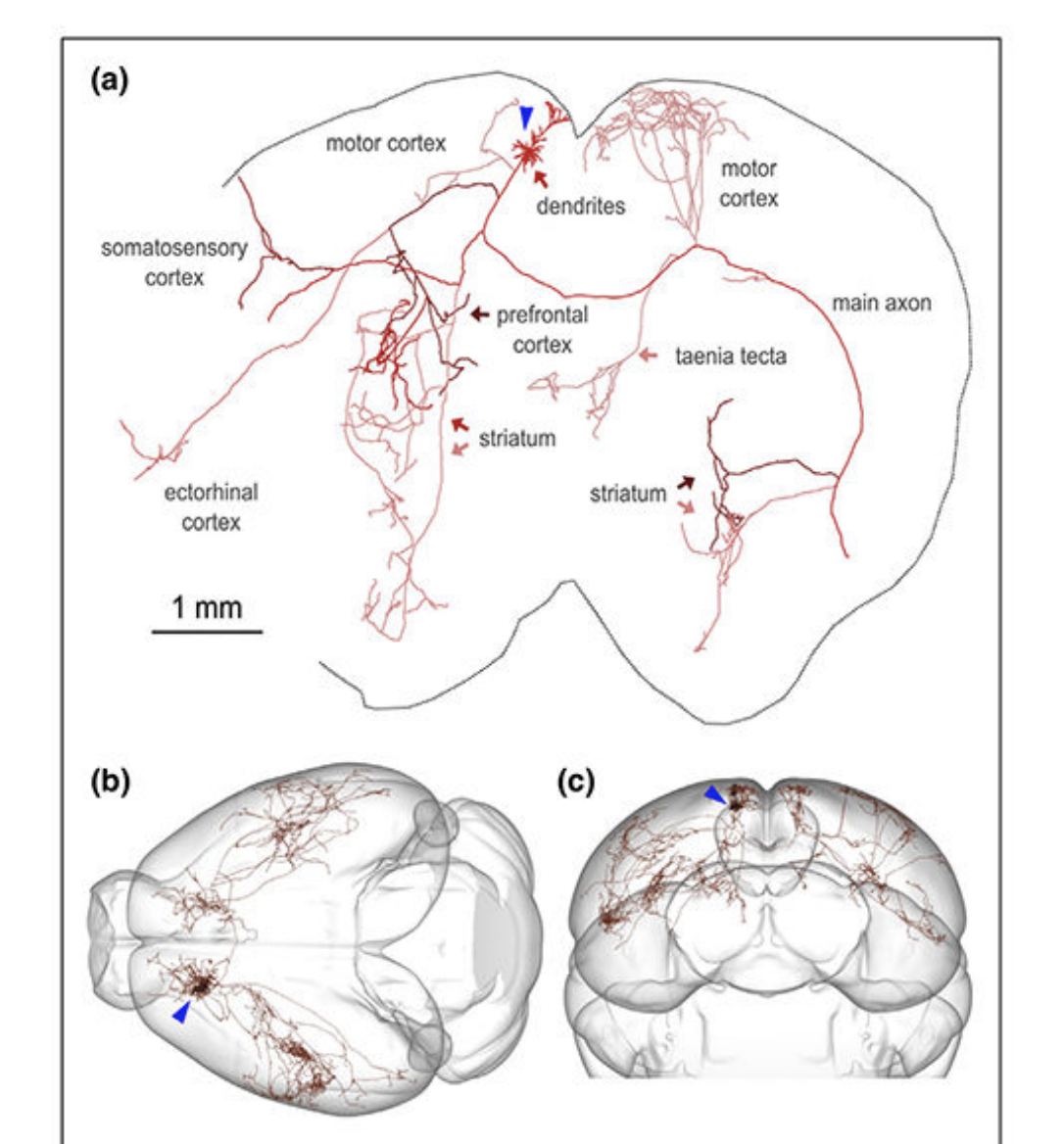Synaptic connectivity within neural circuits is characterized by high degrees of cellular and subcellular specificity. This precision arises from the combined action of several classes of molecular cues, transmembrane receptors, secreted cues and extracellular matrix components, coordinating transitions between axon guidance, dendrite patterning, axon branching and synapse specificity. We focus this review on recent insights into some of the molecular and cellular mechanisms controlling these transitions and present the results of large-scale efforts and technological developments aimed at mapping neural connectivity at single cell resolution in the mouse cortex as a mammalian model organism. Finally, we outline some of the technical and conceptual challenges lying ahead as the field is starting to explore one of the most challenging problems in neuroscience: the molecular and cellular logic underlying the emergence of the connectome characterizing specific circuits within the central nervous system of mammals.
